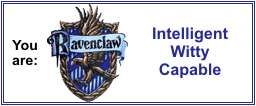War and Peace
Written By Leo Tolstoy.
Review by Donna Tussing
Two connected events — Russia's defeat in the Crimean War (1853-1856) and the subsequent emancipation of the serfs in 1861 — helped inspire Leo Tolstoy's War and Peace (1865-69).
Emancipation precipitated a crisis, economic and social, that forced Russians to try to re-invent themselves as a people. Tolstoy, having fought in the war, and fully aware of the challenges posed by emancipation, wrote an epic novel about a pivotal event, the War of 1812, in which the country united to expel a foreign invader.
It is no accident that the novel rallied Russians during the German invasion in the Second World War. For Russians and non-Russians alike, it provides a template for "Russianness" that is as much model as mirror. And at the same time, it has inspired writers of other nationalities, such as India's Vikram Seth (A Suitable Boy), to imagine the foundations of their own societies.
War and Peace "speaks to your very gizzard," as philosopher William James put it.
No other historical novel seems so real and so universal. Every character in it — however much a historical and social type, from peasant partisan Shcherbatyi to Napoleon — is also endowed with a psychologically comprehensible inner life. Each, from Princess Marya with her heavy step to General Kutuzov with his waddling one, has a physical presence.
Events are described from the point of view of individuals who participate in them. Readers are along for the ride, body and soul. It takes time to develop such characters and reveal a world through their eyes; hence the novel's great length. To make us concentrate on details in such a long book, Tolstoy divided it into 15 parts, each of which has many, many chapters. The world of the novel is assembled from various sources: personal, literary, historical and even philosophical.
Tolstoy's art evolved out of his early diaries, and in War and Peace, as always, he mined himself for psychological insight. He drew on his own wartime experience (as a newly minted officer like Nikolai Rostov, or an ambitious adjutant like Prince Andrei, or a front-line artillery officer like Captain Tushin).
He debunked romantic versions of war, and to this extent parodied previous literature. But he also learned from such works as the Odyssey, Stendhal's Charterhouse of Parma and Alexander Pushkin's The Captain's Daughter. Fantasy plays a large organizing role in the novel, and contributes to its charm.
When Pierre inherits a great fortune; when Andrei, MIA after the Battle of Austerlitz, arrives home for the birth of his son; when Natasha Rostova and Pierre, and then Nikolai and Princess Marya, finally get together — these results satisfy us deeply. They are balanced by tragedies, such as the deaths of several major characters, to keep the novel honest.
To conjure up a past epoch, Tolstoy read thousands of pages of history, memoirs and letters, incorporating large chunks of them into the novel almost unchanged. He exploited family and family history for inspiration: For instance, in early drafts, the Rostovs were Tolstoys. Finally, as the novel expanded during its writing, he developed a controversial and influential philosophy of war and history.
An omniscient narrator guides us through events and between characters. Occasionally, more often in later parts, he breaks out in digressions. The novel has two epilogues, the first divided between fictional narrative and philosophical reflections by the narrator, and the second, all reflection.
The author, Tolstoy, as part of his attempt to write a book with everything in it, from fairy tales to philosophy, allows himself to comment on his own creation through this disembodied voice. The voice can be openly didactic, but it does not subordinate the whole fictional world to itself. The natural and epic resist its moral teaching.
At the end of the novel, Andrei's young son, Prince Nikolenka, still wants to go to war, and Pierre, about to join a conspiracy (the 1825 Decembrist Uprising) that was the original subject of the novel, casts aside the lessons of his earlier disastrous attempt to affect history.
War and Peace is the greatest description ever penned of what modern warfare and a modern army feel like to participants. Combat soldiers find words in it for what they could not previously explain to themselves or others.
The novel has schooled all subsequent war writers in these matters, including Stephen Crane and Ernest Hemingway. War is hell in it, but hell has benefits for those who must go there. If you want to know why, for good or ill, people will always be willing to fight wars, read War and Peace.
Donna Tussing Orwin teaches Russian literature at the University of Toronto. She is the author and editor of several books on Tolstoy. In April, she was awarded the Pushkin Prize by President Vladimir Putin for contributions to the study of Russian culture and language.
This is entry number 44 for the 50 Greatest Books series. Just 6 more to go.
Saturday, November 8, 2008
Subscribe to:
Post Comments (Atom)









No comments:
Post a Comment